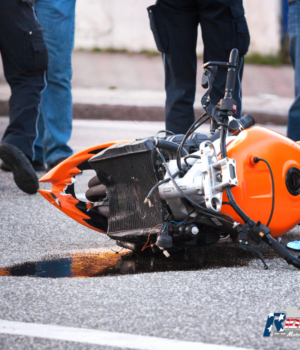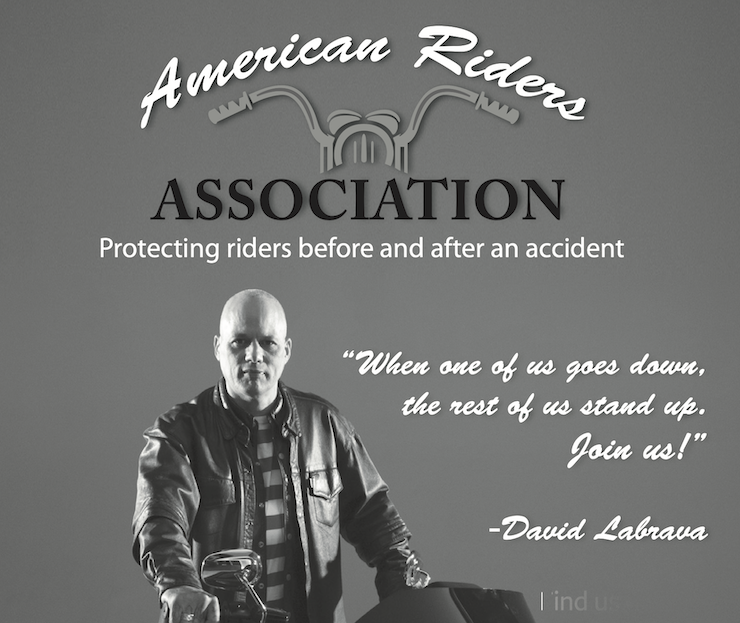We’ve all heard it – that car or bike was “totaled.” But what exactly does it mean, and what happens to a motor vehicle after it has been deemed a “Total Loss” by an insurance company?
Late model vehicles are considered a “Total” when the estimated cost to repair it reaches about 65-80% of the market value. This threshold is set by state law and insurance company guidelines (antique and collector vehicles are handled differently – we’ll discuss that in a future column!). So why a percentage lower than the value of the vehicle? Wouldn’t the insurance company pay less for a claim if the repair costs 85% or 90% of vehicle value?
As you know, insurers study claim statistics carefully. And they have found that in most cases they pay LESS for a claim when repair costs are under their “total loss threshold” OR they pay the full vehicle value for initial estimates over their “total loss threshold.” Two factors come in here – the first is that the insurer takes ownership of the “totaled” vehicle and is able to sell it as salvage to offset some of the claim cost. The other issue is the fact that often more damage is discovered when repair work begins, and then the ACTUAL repair cost exceeds the vehicle value.
For example, let’s say your bike is valued at $5000. You’re in a relatively minor accident and though the frame and engine are not damaged, there are scratches and scuffs on every panel and chrome surface. The cost to replace these items and repaint the bike runs at $4100. The company pays you $5000. Then they take possession of the bike and sell it to a wholesaler or junk yard for $1000. In this case they’ve paid out a net $4000, instead of $4100 for a repair.
Or, let’s say the insurance company opts to pay $4100 to repair this bike. The shop starts work and finds a hairline crack in the handlebars that was not previously visible. Many parts have already been ordered and replaced, hours of labor have already been spent, and the new part replacement adds $1000 to repair costs. Now, the insurance company has paid out $5100 for a vehicle worth only $5000. And had they “totaled” the bike, again they would have paid out only $4000 net. Additional damage is extremely common, especially for damaged autos where many damaged parts cannot be seen until damaged exterior panels are removed.
When you receive a total loss settlement you have options. You can take the money, surrender the damaged vehicle, and use the cash to purchase another vehicle. Or, you may opt to buy back the damaged vehicle and repair it yourself. For this option the insurance company estimates the market value of the vehicle, subtracts your deductible AND the salvage value of the unit. Once an insurance company has determined a vehicle to be a “total loss” the title is usually stamped as “Salvage.” However, be aware that there are challenges with owning a Salvage Title vehicle that must be considered.
First – Salvage vehicles have considerably lower value than the same non-salvage vehicle – up to 50% less. While vehicles must be inspected before they can be put back on the road, some rebuilders cut corners using inferior parts and methods. Vehicle valuations services like Kelly Blue Book do not even list values for salvage vehicles because they vary so widely depending on the actual prior damage and quality of repair. If you do buy back your vehicle, you can offset this somewhat by taking excellent photos of the pre-repair damage and documenting the repair process through photos and receipts. With this information you can prove that the damage was minor and you performed quality work using quality parts and repair practices.
Second – Insurance: most insurance companies do not insure salvage title vehicles. A major factor is the valuation issue – there is no way for the insurance company to accurately place a value. Some will allow coverage for Liability, but will no longer offer coverage for physical damage to the vehicle itself. Or, they may offer physical damage (Comprehensive or Collision) coverage, but the amount you’ll receive at the time of another claim can be 50% lower than a non-salvage vehicle.
Resale – if you plan to keep the vehicle yourself and ride or drive it until it falls apart, fine. But if you plan to sell it in the future, you may have trouble finding a buyer. The price you can get for a salvage title is less, the new buyer may not be able to insure it, and if they need a loan they may not find a lender willing to lend money for it. Again you can do your part on the “value” part by keeping records, but that may not help the buyer with the insurance or loan issues. You automatically shrink the market to people that are willing to deal with the hassle of owning a Salvage vehicle. With the advent of services like Carfax, most owners have the ability to check vehicle history in seconds and they bypass cars that have issues like a major claim or total loss incident.
Safety – if you are doing the work yourself, you’ll know that you have followed all the rules, purchased quality components, etc. But if you pay someone else to repair the vehicle for you, you may not know if everything has been repaired to manufacturer specifications. For example, several body shops around the country have been charged with installing fake airbags this year. And I’ve found reports of dummy air bags filled with socks, paper, and other junk which do nothing to protect vehicle occupants. Airbags are just one component – with thousands of parts to repair or replace, there are many possibilities that something is not done safely, potentially putting you and your family at risk.
There can be some good reasons to keep a totaled vehicle. If damage is minor body issues and you have the ability to repair the vehicle yourself, you can have a very nice ride for little money. If you’ve always loved the bike or car, fine. If there is a sentimental attachment – the bike was owned by your late father, or was your first car, fine. As long as you understand and accept the insurance, loan, resale, and safety issues that can accompany a salvage title vehicle and have made an informed decision, you won’t have any surprises.
Next month we’ll discuss the specifics of a total loss for motorcycles and cars with extensive customization, or higher values due to age, condition and collectability.
Karen Diehl operates Diehl Insurance with husband Eric. They agency specializes in motorcycle insurance for motorcycles and collector cars in Ohio, Kentucky and Indiana.














